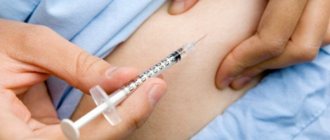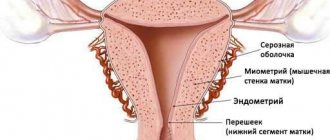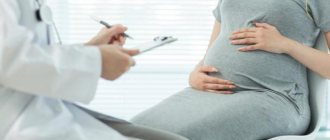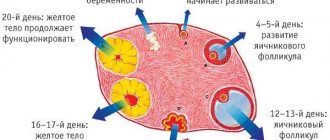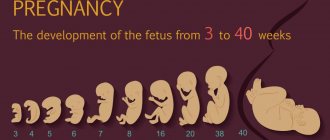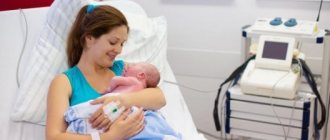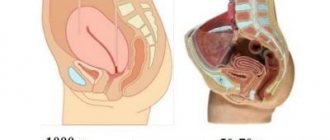What gynecologists say about such pain
Pain during ovulation for the most part is not a pathology.
All over the world, gynecologists consider such sensations to be an absolutely physiological process. Painful phenomena are typical primarily for young girls (up to 20 years), but can also occur at a more mature age. As for the duration of pain after ovulation, it is considered normal to experience discomfort for a maximum of 24 hours. This phenomenon does not require any special treatment, for the most part does not cause significant inconvenience to the woman and goes away on its own within the specified time.
Menstruation
The occurrence of pain before the onset of menstruation is one of the main complaints with which women come to see a gynecologist. If the pain recurs regularly and begins to appear a couple of days before the start of menstruation, this means that pathological processes have begun to develop in the uterus, affecting not only the cavity, but also the appendages and cervix.
Regular pain may indicate the development of diseases such as endometriosis, cancer, pyelonephritis, cystitis, etc.
One of the symptoms of endometriosis is acute tingling, which can be observed against the background of dysmenorrhea. In this case, the pain is accompanied by nausea, vomiting, general weakness, migraine, dizziness, lack of appetite, etc. Pain may occur during bowel movements or during sexual intercourse.
Pain in the uterus can signal an inflammatory process, in which purulent discharge is often observed. With uterine cancer, stabbing pain may not appear immediately and is often accompanied by bleeding.
To reduce pain, sedatives or antispasmodics are recommended. In any case, it is necessary to remember that these remedies only help temporarily relieve pain, but are not able to cure the disease. Only a visit to a specialist, tests and examination will be able to identify the causes that cause pain in the uterus itself, in its cervix and appendages.
Pain during menstruation may indicate:
- hormonal imbalances;
- inflammatory processes;
- erosion process;
- cysts;
- fibroids.
To relieve pain, you can use antispasmodics (drugs that relieve spasms of smooth muscles) and painkillers. But you should not self-medicate, as this may worsen the situation. Only a specialist can prescribe the necessary treatment. For example, if tingling in the uterus is caused by hormonal disorders, the doctor may prescribe a course of hormonal medications, which are prescribed individually according to indications after the necessary studies.
Additional signs of successful conception
The fetus tries to communicate its existence from the very first days. There are plenty of signs, you just need to be able to notice them.
Heaviness in the lower abdomen. Discomfort appears in the pelvic area. These symptoms may appear in the first week. They indicate that the uterus has become hypersensitive, as well as changes that have occurred in it. Each body feels differently. Therefore, all patients named different pain thresholds. But almost all of them stated that during subsequent pregnancies the pain was much stronger.
When to see a doctor
If you notice severe pain that lasts more than 48 hours, it is recommended to visit a gynecologist. As a rule, if any pathology is detected, you will be prescribed painkillers or hormonal birth control pills.
Before you visit your doctor, pay attention to how your stomach hurts after ovulation, and also collect additional information that may be useful to you at your appointment:
- On what days of the menstrual cycle do you experience discomfort?
- Places where pain is most clearly felt.
- Duration of discomfort.
- The presence of any additional symptoms.
Tingling in the uterus after stopping birth control
In order for an egg to be fertilized by a sperm, sex must be unprotected. For these purposes, the couple should stop using contraceptives. But many women who protected themselves not with condoms or IUDs, but with oral contraceptives (OCs), turned to doctors with complaints that they had colitis in the uterus after ovulation had passed, the menstrual cycle had changed in duration, and menstruation became more or less less abundant.
Remember that you cannot simply stop using OCs. Finish all the tablets in the package, otherwise you may provoke a sharp hormonal surge. You cannot start planning a pregnancy immediately after you have stopped taking oral contraceptives. Your ovaries need proper rest; they will stop hurting and will be able to work without problems. Therefore, have sex with a condom.
What symptoms occur when you stop taking OCs:
- cervical mucus becomes less viscous, the chemical composition of the vaginal flora and the structure of the endometrium will change;
- due to suppression of the reproductive system, the menstrual cycle will be disrupted. Therefore, it will take him some time to get back to normal;
- if you suddenly stop taking the drug, bleeding may begin;
- libido changes. Moreover, it can either increase or disappear;
- skin rashes;
- feeling of fullness in the uterus;
- problems at the nervous system level;
- weight fluctuations.
Pregnancy and pain after ovulation
If after ovulation the lower abdomen feels tight and you had unprotected sexual intercourse, then it’s time to think about adding to the family. It should be remembered that only an ultrasound procedure can confirm pregnancy with one hundred percent accuracy, while indirect signs can lead you to an erroneous conclusion.
https://www.youtube.com/watch?v=WgHRWc7AlXI
What does the process that occurs after ovulation look like in case of suspected conception? The egg, having met the sperm, forms a zygote, the purpose of which is to reach the uterus, where its further growth and development will occur. Usually the process of fixation of the zygote occurs at the very end of the menstrual cycle, and it is this process that is accompanied by unpleasant sensations. In addition to nagging pain, possible signs of pregnancy are often identified, such as:
- frequent mood changes;
- aversion to strong odors;
- increased appetite;
- increased sensitivity.
Women often consider tingling in the lower abdomen after ovulation to be a clear sign of pregnancy. However, you should know that the cause of pain can be infection, inflammation, internal trauma, or hormonal changes.
If your pregnancy has already been confirmed, and pain in the lower abdomen continues for a long time, then this condition is a cause for concern: it is quite possible that this may be a sign of a threatened miscarriage.
At the very beginning of pregnancy, even before the delay occurs, changes begin to occur in the female body. Signs that help determine whether a woman is pregnant or not before a delay may appear differently for everyone. However, there are several basic signs that can give almost one hundred percent results.
Before the delay, a woman may experience slight vaginal discharge. They signal the implantation of the embryo on the wall of the uterus. This symptom can only give a guarantee if the woman has a regular menstrual cycle, there are no problems with ovulation, there is no erosion of the cervix and other diseases of the reproductive organs.
Before the delay, you may experience weakness, lethargy and general malaise. However, a woman may confuse this signal of pregnancy before a missed period with a common cold. Also, before the delay occurs, sleep disturbance may occur.
From the period of embryo implantation, that is, even before the delay, a woman may feel a feeling of heaviness in the uterus. After the first week of pregnancy, most women feel a slight tingling sensation in the uterus from time to time.
Acute colic in the uterus, which is combined with bleeding, can signal an ectopic pregnancy. This condition is usually accompanied by loss of consciousness and fever. If tingling is observed in the early stages and is accompanied by bleeding, then it is necessary to urgently call an ambulance, as this is a harbinger of a possible miscarriage.
Tingling during pregnancy in the uterus can be observed when the position of the appendages changes. This condition may be accompanied by symptoms such as nausea and vomiting. Sharp, severe pain, accompanied by bleeding from the vagina, signals necrosis of the node. Often observed in the early stages of pregnancy (first trimester), as well as after childbirth and abortion.
If the pain is not severe, and there are no undesirable symptoms such as bleeding and dizziness, then such a condition may signal possible pathologies of pregnancy.
Basically, the causes of colic are hidden in the fact that when pregnancy occurs, some changes begin to occur in the expectant mother’s body, which also affect the uterus. Against the background of such changes, some sensations may be felt that do not pose a threat to the health of the woman and the fetus.
However, if during pregnancy a woman feels tingling in the uterus, urgent consultation with a doctor is necessary. Even in cases where pain does not warn of the development of pathologies, it is better not to risk your health.
Hormonal imbalance
For a woman’s health, it is very important that during the menstrual cycle the amount of the hormone progesterone and estrogen is balanced. If there is an imbalance, the cycle length will likely change. Very often, when there are disruptions at the hormonal level, uterine contractions occur, and after menstruation you will feel severe pain in the lower abdomen.
- menstruation is irregular;
- mood changes dramatically (pessimism, depression, aggression, anger);
- weight has increased or decreased sharply;
- loss of sexual desire;
- hair began to fall out;
- there is heaviness in the uterus.
Reasons that may cause failures:
- Climax. If you are over 40 years old, most likely the disorders were caused by menopause. The body stops producing eggs, which affects the capacity of estrogen in the blood.
- Childbirth and pregnancy. If this is why the problem arose, then it should go away on its own after the baby is born.
- Puberty. A surge of hormones often occurs in teenage girls during the formation of childbearing functions of the body. Unfortunately, there are cases when hormonal levels can stabilize only after the birth of a child.
- Obesity. Excess weight causes the body to produce insufficient amounts of hormones. There are many more reasons that can provoke an imbalance: worries and stress, junk food, unhealthy lifestyle, gynecological problems, excessive exercise, taking steroids, oral contraceptives, and some medications.
Possible causes of pain
The process of ovulation itself is the release of an egg capable of fertilization into the fallopian tube. Throughout a woman’s reproductive period, this process is characterized by a certain cyclicity and is repeated on average once every 21-35 days. In some cases, changes in the cycle are possible; as a rule, this event may be associated with certain external and internal factors, including abortion and the postpartum period.
Pain after ovulation can be due to a number of reasons. Let us first try to clarify what happens in the female body during different phases of the menstrual cycle. The first two weeks after the last menstruation are characterized by follicular growth. Around the fourteenth day, the follicle emerges from the egg and ruptures; instead, the so-called corpus luteum is formed.
If your lower abdomen feels tight after ovulation, this may be due to:
- Stretching of the ovary during follicle growth.
- Breakthrough of the ovarian wall by the egg.
- Abdominal irritation caused by minimal internal bleeding of the ovary during ovulation.
Pain in the lower abdomen after ovulation of a physiological nature can be characterized by the following symptoms:
- suddenness of unpleasant sensations;
- feeling pain on one side only;
- Regular, monthly recurrence of pain.
In rare cases, slight bleeding may occur, weakness and nausea may occur, and pain may be felt in the lumbar region.

